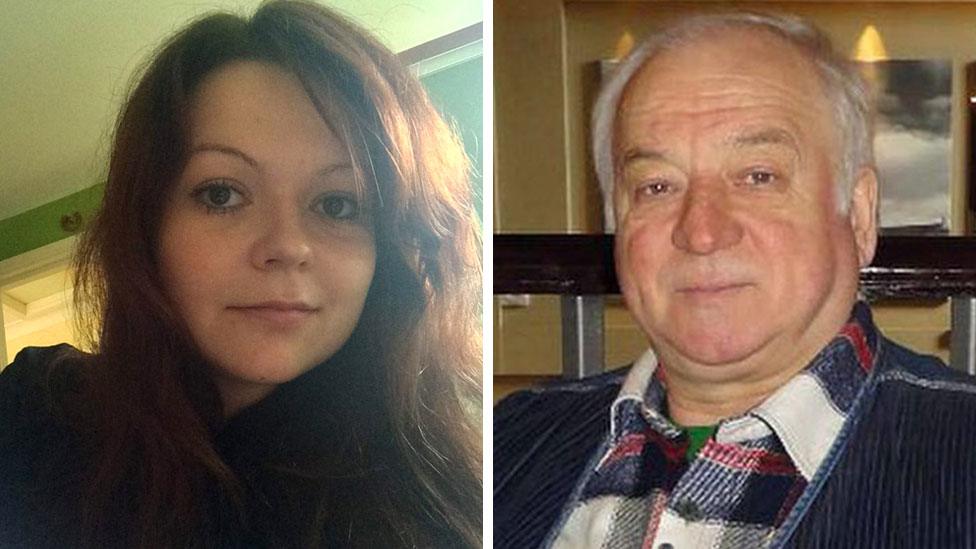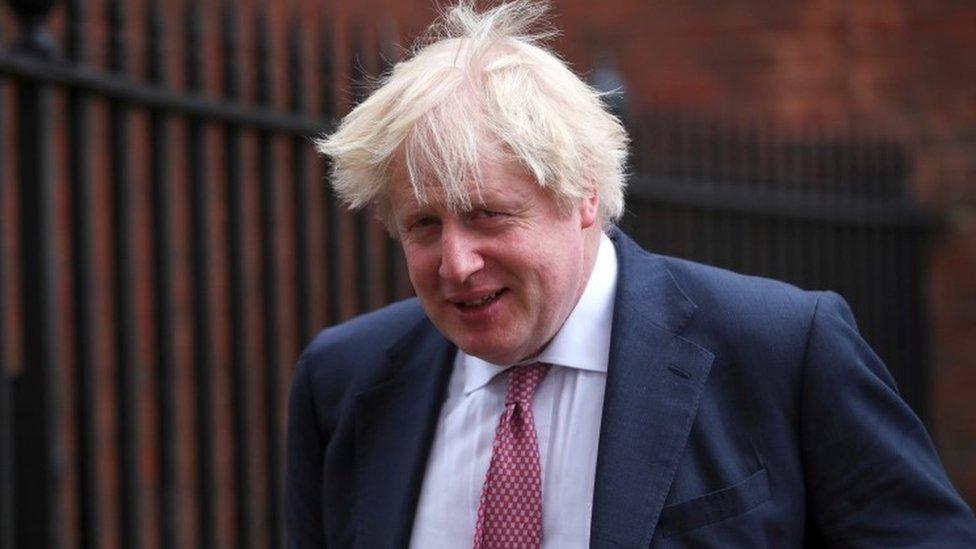Russian spy: Embassy request is diversionary tactic, says UK
- Published

Sergei Skripal, 66, and his daughter Yulia, 33, remain in hospital
The Foreign Office has described a Russian request for a meeting with Boris Johnson on the Salisbury poisoning as a "diversionary tactic".
The Foreign Office said Russia's response had been "unsatisfactory", as it had been three weeks since Russia was asked to "engage constructively".
The Russian Embassy said it was "high time" for a meeting on the inquiry.
Current interaction between the embassy and the Foreign Office was "utterly unsatisfactory", it said.
The Foreign Office said it would respond to the invitation for a meeting between Ambassador Alexander Yakovenko and Foreign Secretary Mr Johnson "in due course".
It said: "It's over three weeks since we asked Russia to engage constructively and answer a number of questions relating to the attempted assassinations of Mr Skripal and his daughter.
"Now, after failing in their attempts in the UN and international chemical weapons watchdog this week and with the victims' condition improving, they seem to be pursuing a different diversionary tactic."
The UK government says Russia is behind the attack on a Russian father and daughter - Sergei and Yulia Skripal - who were poisoned with a toxic nerve agent in Salisbury last month.
Moscow has denied all involvement.
In a statement, external, a Russian embassy spokesman said: "We believe that it is high time to arrange a meeting between Ambassador Alexander Yakovenko and Foreign Secretary Boris Johnson."
It added that the ambassador had already sent a note to the foreign secretary, and it hoped "the British side will engage constructively and that such meeting is arranged shortly".

The meeting request follows Russian Embassy criticism of the UK government's refusal - on immigration rules - to grant a visa to Ms Skripal's cousin, Viktoria Skripal, to visit Britain.
The Russian Embassy said Sergei and Yulia "remain hidden from the public".
"The stubborn refusal to cooperate, to provide transparency and to answer the numerous questions means Britain has something to hide," the embassy said.
Viktoria Skripal later told the BBC she did not have enough money in her bank account to satisfy the visa requirements.
Mr Skripal was jailed by Russia for spying for Britain, but released as part of a spy swap between the US and Russia in 2010.
His daughter Yulia was visiting him in the UK when the attack happened on 4 March. She is now conscious and talking in hospital.
Salisbury District Hospital has said Mr Skripal, is responding well to treatment and "improving rapidly".
A diplomatic crisis between Russia and the West has followed, with more than 20 countries expelling Russian envoys in solidarity with the UK.
Russia's request for a new, joint investigation was voted down at the international chemical weapons watchdog at The Hague on 4 April.
Two days later, at a UN Security Council meeting, Moscow's UN ambassador Vasily Nebenzia said Britain's main goal had been "to discredit and even delegitimise" Russia with "unsubstantiated accusations".
But Britain's UN representative Karen Pierce said the UK's actions "stand up to any scrutiny".
- Published6 April 2018
